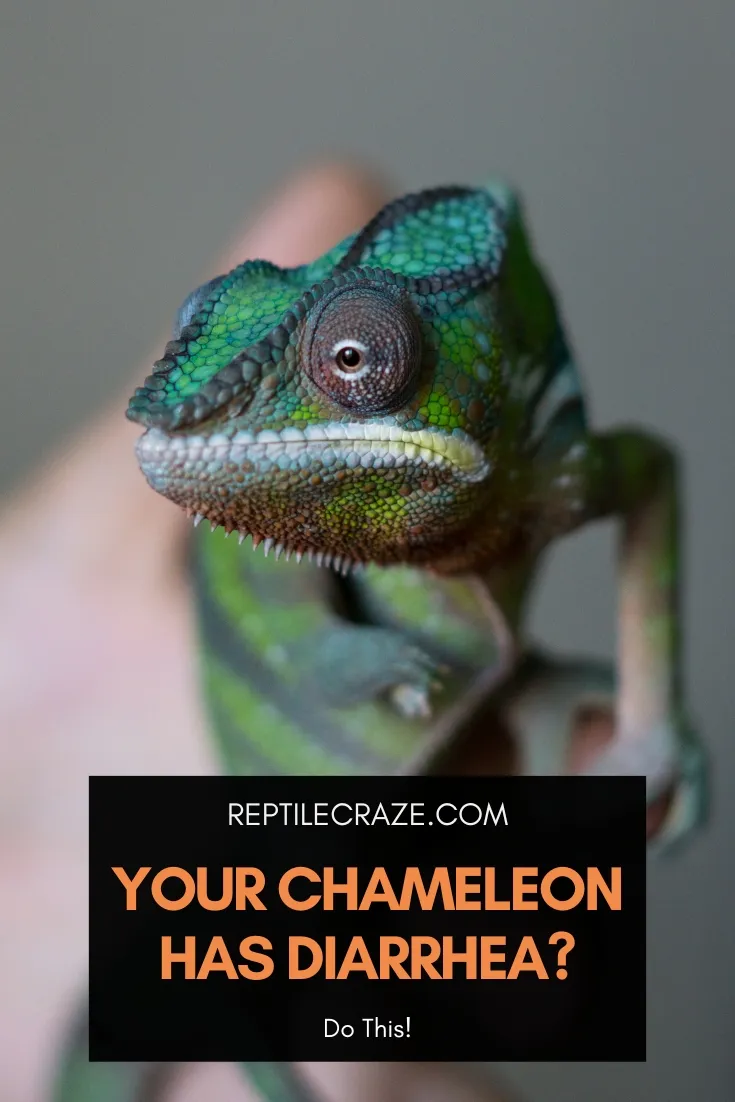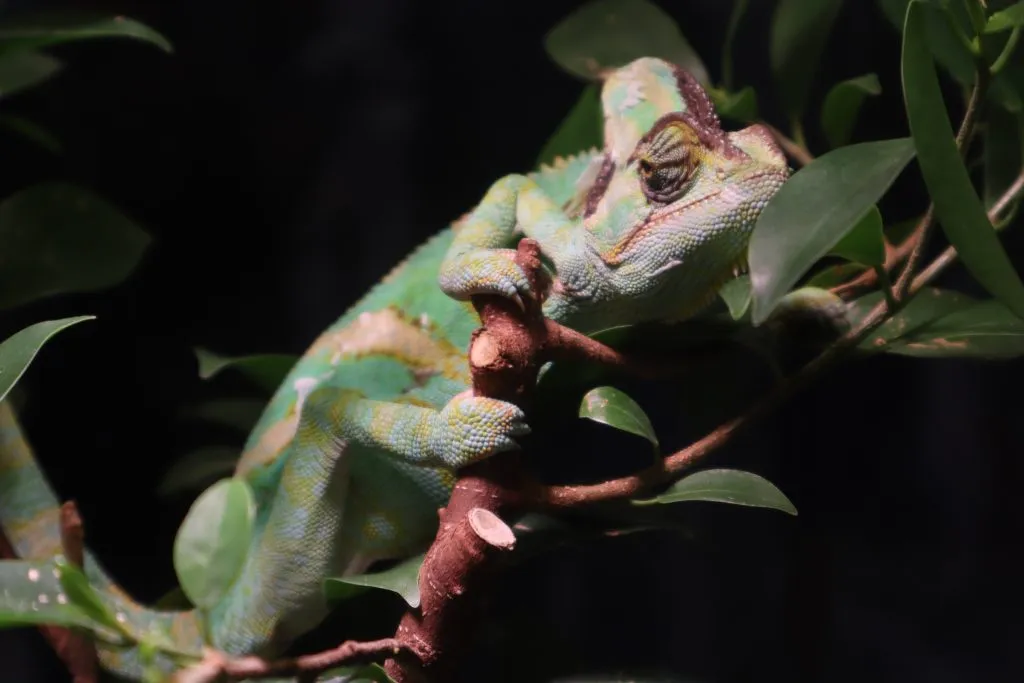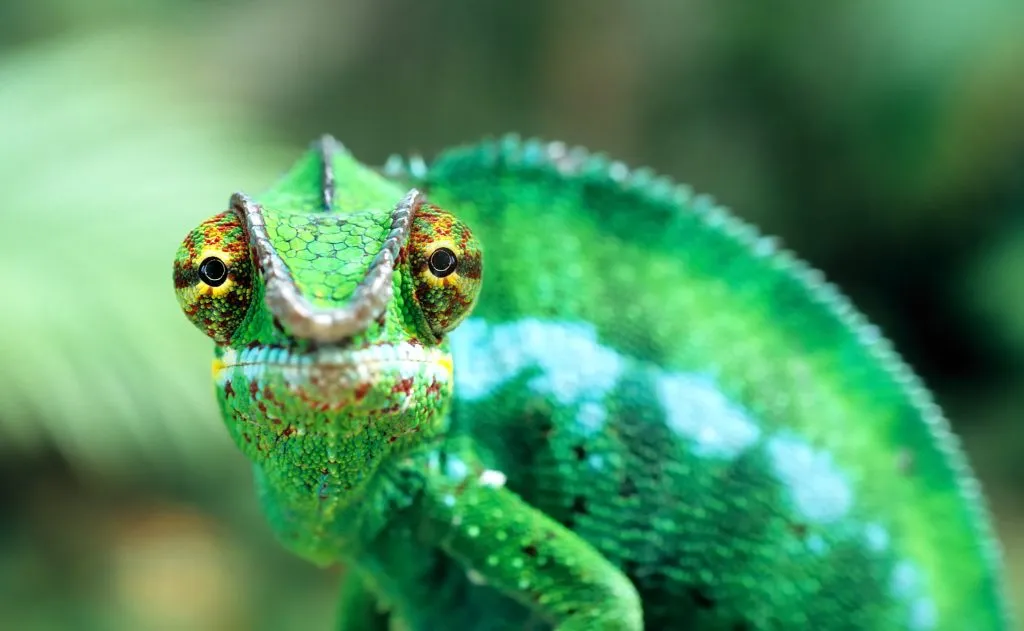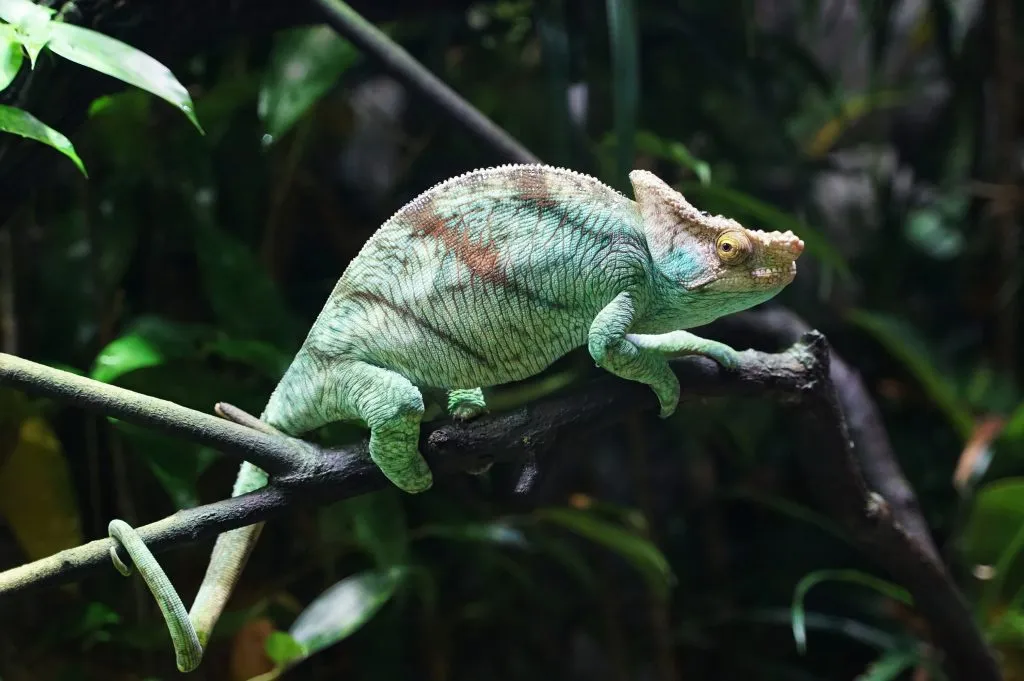
Your chameleon’s poop can tell you a lot about their health and if they have any illnesses. If you notice that your chameleon’s poop is looking slightly different than usual or runny, this is a sign that it may have diarrhea.
Chameleons suffering from diarrhea should visit a vet. If you cannot visit a vet, you can give your chameleon fluid supplements, line the
While taking your chameleon to the vet is always the best option, this is not always possible. In this article, we’ll discuss what you can do if your chameleon has diarrhea and what may be causing diarrhea.
Table of Contents
What To Do If Your Chameleon Has Diarrhea
Aside from taking your chameleon to the vet, there are some easy things that you can do to make your chameleon feel more comfortable and help relieve the symptoms of diarrhea.
Give Your Chameleon Fluid Supplements
So, what does chameleon diarrhea look like? You’ll notice that they are defecating more than usual. Your chameleon’s poop will be very runny and loose.
Chameleons will usually poop around one – three times per week. Any more than that, you will know that your chameleon is suffering from diarrhea.
Chances are, when they are sick they probably don’t feel up to eating, and this is when you need to give your chameleon an oral fluid supplement.
Calcium is extremely important for your chameleon’s health, and a lack of calcium can lead to serious illnesses like a metabolic bone disease.
You can give your chameleon a fluid replacement like Fluker’s Liquid Calcium Concentrate for Reptiles.
It is important that your chameleon keeps drinking water while sick with diarrhea.
You can drip water droplets on leaves to run off in their
Line The Tank With Disposable, Unbleached Paper Towels

While chameleons are naturally very clean and neat creatures while suffering from diarrhea, they are bound to make a mess in the
Diarrhea is an infectious disease and can actually cause re-infection if not cleaned properly. You must clean the inside of the
To make your life easier, you can line the bottom of the
If your chameleon’s poop is very runny and frequent, you may need to do this multiple times per day.
You need to ensure that you wash your hands thoroughly after cleaning the
The bacteria from your chameleon’s diarrhea can be spread to your other reptiles through cross-contamination if you are not careful.
Maintain The Correct Tank Temperature
Tank temperature can play a big role in preventing illnesses like diarrhea and will provide comfort to chameleons already suffering from diarrhea.
Correct temperatures can be linked to functioning metabolism and healing for your type of chameleon.
Panther chameleons should have a
Your veiled chameleon’s tank daytime temperature should be 80 to 88°F (26 to 31°C), and nighttime temperatures should be 65 to 75°F (18 to 24°C). The basking area should be 95 to 110°F (35 to 44°C) with UVB.
Temperatures that are too low can cause your chameleon to become sick and sluggish, making it difficult for them to recover from diarrhea.
At the same time, too-hot temperatures will cause your chameleon to become overheated and stressed.
Soak Your Chameleon

When your chameleon is suffering from diarrhea, you need to give them as much fluids as they can handle to prevent dehydration.
Chameleons do not need a water dish. They prefer to lick water droplets off of plant leaves. They also absorb water through their skin, so soaking your chameleon when they are sick is recommended.
Staying hydrated while soaking will help prevent diarrhea from getting worse. Zoomed Reptile & Amphibian Electrolyte Soak is a good product you can get off Amazon.
This is an electrolyte soak with added pre and probiotics, which are especially helpful for improving gut health.
Dehydration is a very serious side effect of diarrhea, and one way of preventing this is by increasing fluid loss with electrolytes.
Leave your chameleon to soak in warm water for 10 minutes with the added electrolyte powder. This will help replace lost fluids due to diarrhea.
You can also soak your chameleon in warm water with temperatures around 75-80 °F for 15-30 minutes once or twice a day.
What Causes Diarrhea in Chameleons?
So, what actually causes diarrhea in chameleons? Knowing the causes can help you prevent it from happening again in the future.
Here are the top causes of diarrhea in chameleons.
Bacteria and Parasites
Like humans, diarrhea can be developed by bacteria and parasites, especially because of poor hygiene.
One way of preventing your chameleon from catching a bacterial or parasite infection is by regularly cleaning its
Improper Diet
If your chameleon is not getting enough nutrition and vitamins like calcium in their daily diet, this can cause illnesses like diarrhea. You need to ensure that you are feeding your chameleon regularly.
A varied diet of fresh gut-loaded insects, calcium, and multivitamin supplementation is needed. Chameleons like the Veiled chameleon also like plant matter added to their diet, like mixed greens and fruits.
Stress

Stress is another cause of illness in chameleons. Chameleons are typically docile, but they can become stressed. You’ll notice that their skin color darkens.
To prevent your chameleon from getting stressed, you can do the following:
- House chameleons alone
- Maintain correct temperatures
- Avoid handling your chameleon when it doesn’t want to
Conclusion
Taking your chameleon to the vet when they have diarrhea is the best option, as a vet can prescribe the correct medication and fluid therapy.
If this is not an option, you can give your chameleon fluid supplements, soak them, clean the
- Enchi Ball Python: A Unique and Stunning Morph of Python regius - March 27, 2025
- Emerald Tree Monitor: The Enigmatic Green Guardian of the Rainforest - March 26, 2025
- The Egyptian Cobra (Naja haje): A Fascinating Serpent - March 25, 2025
